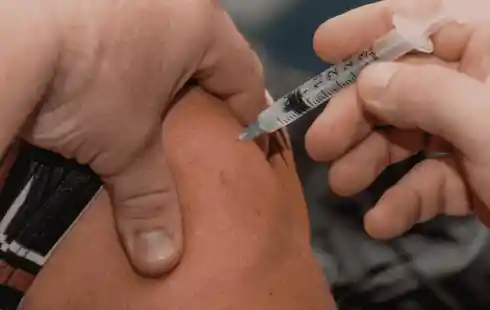
Fully Funded Scholarship Opportunity at the Bavarian International School for 2026-27
Section: News
 In the midst of the COVID-19 pandemic, mRNA vaccination has emerged as a revolutionary approach. Operating akin to a genetic blueprint, this unique vaccination prompts the body's cells to interpret mRNA instructions and generate proteins. Consequently, the immune system responds by producing antibodies.
In the midst of the COVID-19 pandemic, mRNA vaccination has emerged as a revolutionary approach. Operating akin to a genetic blueprint, this unique vaccination prompts the body's cells to interpret mRNA instructions and generate proteins. Consequently, the immune system responds by producing antibodies.
Now, this groundbreaking technology holds promise in the fight against skin cancer. The German Cancer Research Center reports that this vaccination is intended for use in patients already diagnosed with cancer, aiming to significantly reduce relapse and mortality rates. Thousands of patients worldwide will participate in trials to assess this novel approach, with a British individual being the inaugural recipient of the injection.
Researchers are optimistic that this innovative treatment may extend to other cancer types. Already in Kassel, immunotherapy has been administered to the first patient battling colon cancer.
Pioneering Immunotherapy: Steve Young, a Briton, Receives First Vaccine
Last year, 52-year-old Briton Steve Young underwent successful tumor removal from his scalp. However, the risk of skin cancer recurrence remains considerable. The mRNA vaccination offers hope for protection against such relapses. "I'm very, very excited," Young shares with the BBC on camera.
Clinical trials last year involved 157 participants with advanced melanoma, including 81-year-old German Hans-Dieter Schewe. "I hope to not only contribute but also to benefit," expresses Schewe in an ntv video.
Harnessing the mRNA Vaccine from the COVID-19 Pandemic for Skin Cancer Treatment
The most severe form of skin cancer, malignant melanoma, is the target of the mRNA vaccine jointly developed by Moderna and MSD. Unlike COVID-19 vaccines, this injection targets the body's own cancer cells, administered post-tumor removal. Each patient's tumor is analyzed to tailor the vaccine uniquely. The aim is to instruct the body to recognize and combat cancer cells, preventing recurrence, as outlined by the German Cancer Research Center.
Professor Gerald Illerhaus, medical director of the Clinic for Hematology and the Stuttgart Cancer Center, underscores the significance: "Certain cancers inhibit this very system, obstructing the normal immune response."
Encouraging Initial Results: mRNA Vaccination Reduces Recurrence Risk
Initial trial results indicate a reduction of up to 49 percent in the risk of cancer recurrence or mortality from melanoma compared to standard treatment with Keytruda. Subsequently, approximately 1,100 German patients will join the global phase 3 study, as reported by ntv. Heightened awareness of warning signs is crucial, particularly for men, given the prevalence of skin cancer.
Skin cancer, the most widespread cancer type, claims many lives annually. Doctors anticipate the potential extension of this treatment to other cancer types, offering newfound hope in the fight against the disease. Undetected cancer can prove fatal, as exemplified by the ordeal of a Sacramento woman initially misdiagnosed with a sinus infection, only to discover she had cancer.
Image by LuAnn Hunt from Pixabay

Section: News

Section: Arts

Section: Travel

Section: Arts

Section: Arts

Section: Arts

Section: Fashion

Section: Politics

Section: Fashion

Section: News
Both private Health Insurance in Germany and public insurance, is often complicated to navigate, not to mention expensive. As an expat, you are required to navigate this landscape within weeks of arriving, so check our FAQ on PKV. For our guide on resources and access to agents who can give you a competitive quote, try our PKV Cost comparison tool.
Germany is famous for its medical expertise and extensive number of hospitals and clinics. See this comprehensive directory of hospitals and clinics across the country, complete with links to their websites, addresses, contact info, and specializations/services.
Join us at the Kunstraum in der Au for the exhibition titled ,,Ereignis: Erzählung" by Christoph Scheuerecker, focusing on the captivating world of bees. This exhibition invites visitors to explore the intricate relationship between bees and their environment through various artistic expressions,...



No comments yet. Be the first to comment!